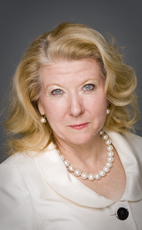Mr. Speaker, I would encourage my colleague to take a look at the Equator Principles, which are international standards that Canada signed onto when those Equator Principles were constructed. We have a counsellor and we are working very well within that framework.
I also would like to say that I did not see her at the PDAC convention in March, in Toronto, where every country in the world was there, asking for Canadian expertise. Every country in Africa had a kiosk at that convention because they are looking to Canadian expertise in our extractive industries to come and bring that expertise into their country to help them develop their resources.
I am very pleased to have the opportunity to speak about the good work that our extractive industries are doing globally and what part they can play in international development. We want to help bring millions of people out of poverty by achieving sustainable economic growth. We want to see families, communities and, ultimately, developing countries, sustain economies and set out on a plan of prosperity.
We are doing exactly that in ways that promote the best of Canadian values. It is our duty to explore all partnerships and all innovative ideas to meet this critical objective. Our government is proud to partner with organizations that share our commitment to responsible resource development. Development that respects those resources beneath the earth of a given country should benefit the people who live above the earth of that country, especially those most in need.
Canada has an expertise in natural resources and we are pleased to share our knowledge with developing countries that are asking us to do just that.
Amadou Koné, the ambassador of Burkina Faso, said, “Burkina Faso needs help training workers and building human resources; Canadian companies can assist with that.”
The Peruvian ambassador, José Antonio Bellina, advocates for a win-win situation through private sector partnerships for development.
Canada's resource sector leads the world in responsible mining practices. The reality is that oil, gas, and mining are increasingly important sources of economic growth, revenue, and employment in the developing world.
In 2011, exports of oil and minerals from Africa, Asia, and Central and South America were more than 10 times the value of international development assistance provided to developing countries in the same year. Trends show that this will only increase.
Canadians know that a responsibly managed extractive sector can be a force for positive change. This translates into jobs, social services, and improved livelihoods so people can lift themselves out of poverty.
Our government has achieved results in the area of private sector partnerships. Thanks to a partnership with World University Service of Canada and Rio Tinto, residents in Ghana will have better educational services, better water and sanitation. And thanks to a partnership between Plan Canada and IAMGOLD, 10,000 youth in Burkina Faso will be trained with real job skills.
Our government's work will be further bolstered by the new Canadian International Institute for Extractive Industries and Development which will harness Canadian and international expertise and best practices to provide developing countries with additional resource governance support.
Development is not about dependency. It is about helping those in need to get a leg-up so they can prosper.

